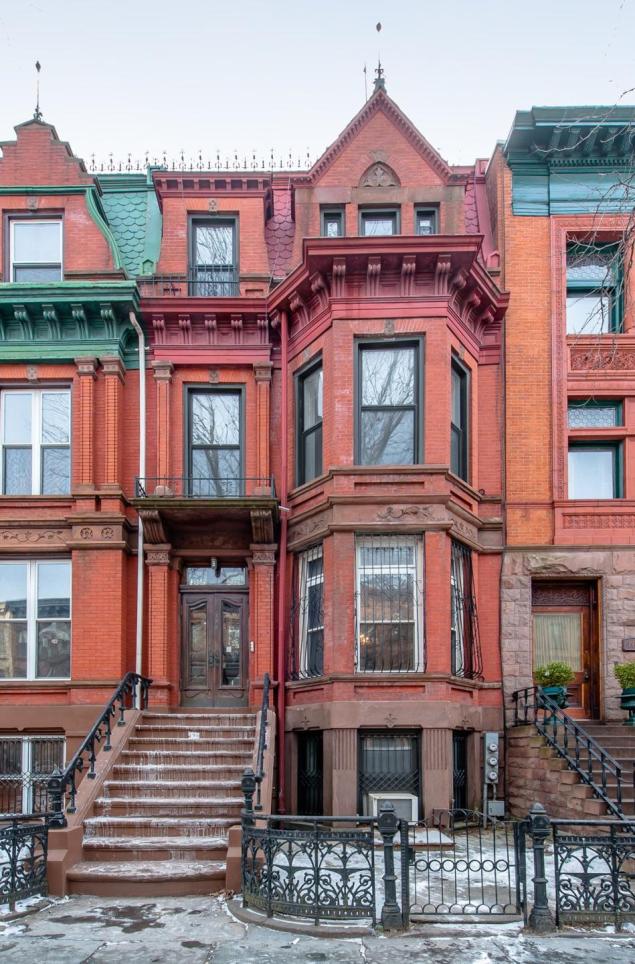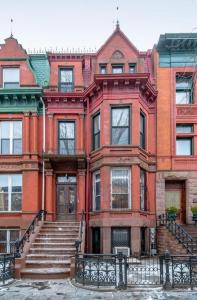
The benefits of buying a NYC townhouse over a co-op or condo
The benefits of buying a NYC townhouse over a co-op or condo
NEW YORK DAILY NEWS
In Manhattan and Brooklyn the vast majority of property sales consist of condo and co-op apartments. Apartment living offers numerous benefits that appeal to many buyers, such as on-site maintenance, high-floor views, amenity spaces, a staffed entrance and single-floor living to name a few.
However, there is a third and less common sector of residential properties in New York City — townhouses.
I have had the unique pleasure of selling many of these special homes over the years. Townhouses provide a unique level of privacy in our densely populated city and even offer the potential for rental income to offset carrying costs.
With a townhouse, there is no condo or co-op board involved in the purchase or sale, creating a much faster transaction from contract signing to closing. Townhouses typically come with backyards, decks or terraces, and are often located on idyllic, tree-lined streets.
EDITORIAL: IF IT AIN’T BROKE
What makes townhouses unique and what should buyers know before embarking upon a townhouse search? Here are several elements to consider.
Width is one of the first characteristics you’ll consider when selecting a townhouse.
Most townhouses are between 16 feet and 20 feet wide. Generally speaking, anything wider than 18′ is considered very valuable and anything wider than 20′ is quite unusual. Twenty-five feet and wider is a “mansion” by our standards.
Width impacts the flow of the house, light and air, and how the rooms are laid out. All square footage is not created equally and in most cases, a long and narrow layout will be much more difficult to furnish than a wider and shorter home.
Original details are a hot topic in the townhouse market. Most townhouses were built anywhere from the late 19th century to the early 20th century, with the exception of some newer developments, and will display a range of original details.
Some offer stunning coffered ceilings, stained glass, original woodwork and floors, marble sinks, elaborate decorative fireplaces, and more.
Many owners, though, have had these details stripped or covered over the years. Certain buyers prize these original details while many others prefer to keep the pre-war exterior but create more modern interiors that reflect better their personal aesthetic and how we live today. Modern features include open layouts, clean lines, large closets, spacious bathrooms, and large kitchens that open onto great rooms.
How many families? In townhouse parlance we speak of the number of “families” as the number of units in the home.
A two-family townhouse consists of two units, a three-family consists of three units, and so on. Most townhouses are considered residential if they are anywhere from one to four families.
SELL YOUR HOME FASTER USING SOCIAL MEDIA
In certain cases, buyers will prefer to have a single family and maintain the entire residence for themselves. In other cases, potential income from renting out one or more units will be a key component in the affordability and attraction of a property over a coop or condo.
Splitting up a townhouse into multiple units, such as one per floor, or reducing the number of units, can require a change to the Certificate of Occupancy, so be sure to consult with an excellent real estate attorney before doing so.
With the vast majority of co-ops and condos, purchasers will choose not to do a home inspection. For one, many condo or co-op boards meet on a regular basis to discuss the condition of the building, including recent and upcoming repairs. Minutes from these meetings are recorded and available to prospective purchasers. In effect, these minutes replace much of the need for an inspection.
In addition, when issues do arise in co-ops and condos, the cost of those repairs is spread amongst numerous units.
With townhouses, however, buyers will absolutely want to conduct a thorough inspection with a qualified home inspector to ascertain the structural integrity of the property, such as any areas of potential leaks, mold, the condition of the boiler, roof, façade, and more.
REAL ESTATE EXPERT’S FIVE TIPS FOR FIRST-TIME HOMEBUYERS
One of my favorite features of townhouses are the low carrying costs. Townhouse owners can save big when they don’t have to pay monthly co-op maintenance and condo common charges to use the amenities found in many buildings in New York City and real estate taxes are often lower as well.
While the cost of maintaining your own townhouse falls completely on your shoulders, as you’re unable to share costs with other owners in the building, there is also a significant opportunity to increase your cost basis from a tax perspective when you invest money to improve your home.
Ari Harkov is a real estate broker with Halstead Property and heads up the Harkov Lewis Team, one of the top teams in the nation as ranked by the Wall Street Journal. The team, which focuses on residential sales in Manhattan and Brooklyn, works with both individual buyers and sellers and developers. Ari holds an MBA with honors from Columbia University and currently resides in Park Slope, Brooklyn, with his wife, 2-year-old son, and dog.
